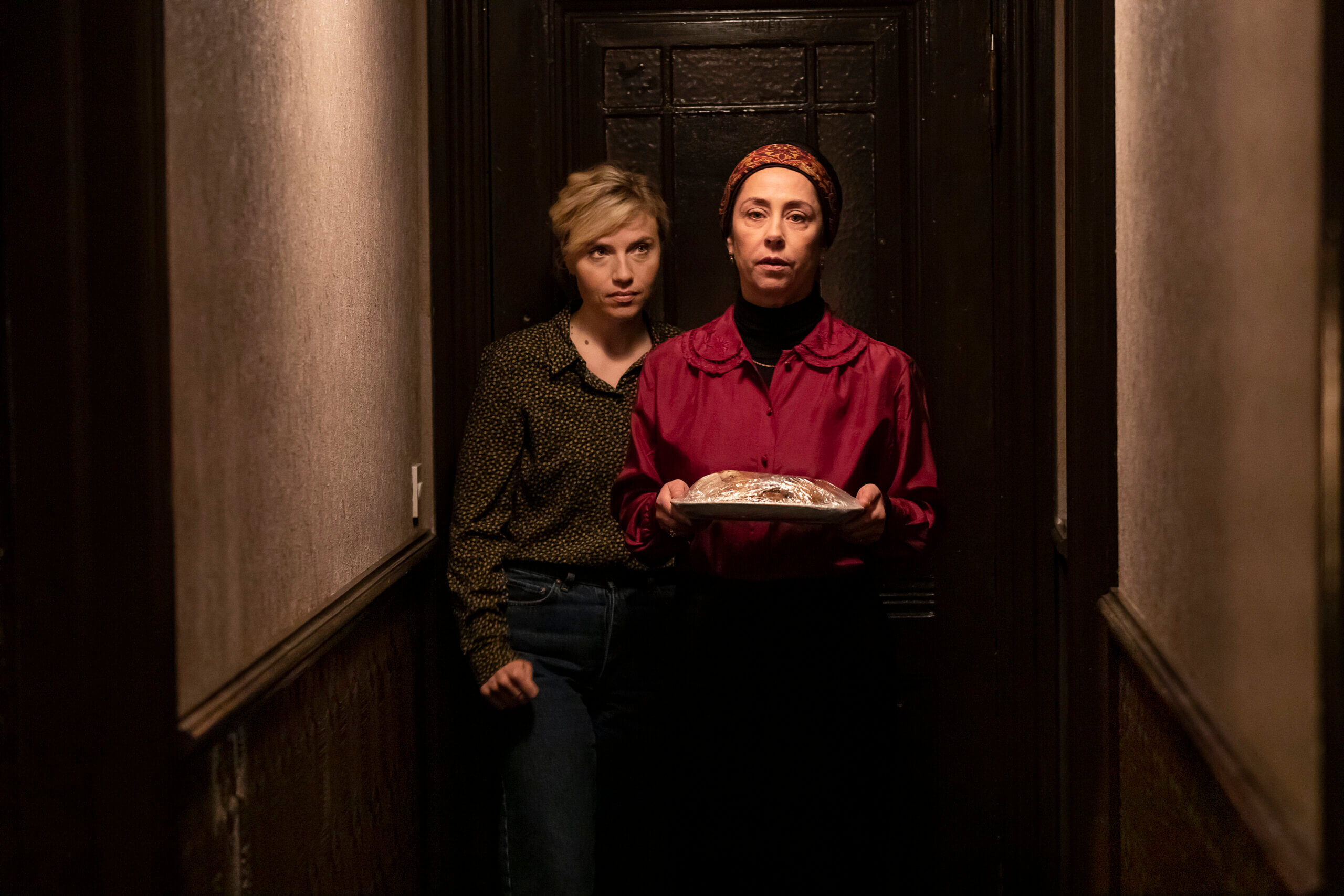There’s now a queer, sexy contender in the Jewish horror movie boom
‘Attachment’ is a funny and fresh take on an already tired formula

Graphic by Angelie Zaslavsky
Jewish horror has a long and — sure, I’ll say it — sexy history. If you don’t believe me, watch Lili Liliana slink through the shtetl in 1937’s The Dybbuk. But the new wave of Hasidic-inflected films feel more than a bit neutered.
Mysticism, after all, is a man’s game in Haredi enclaves (and you’re not supposed to study Kabbalah till you’re 40). This makes films like The Offering and The Vigil, set in Jewish morgues in Borough Park, rely heavily on wizened older guys musty from old forbidden tomes. There’s not a ton for women to do in these movies. Certainly you don’t see them falling in love to Danish pop from the 1980s.
Attachment, from writer-director Gabriel Bier Gislason, brings a jolt of fresh energy to the genre. Largely set in a Haredi quarter of London, the plot kicks off at a library in Copenhagen.
Leah (Ellie Kendrick, of the BBC’s The Diary of Anne Frank, and, more recently, Game of Thrones) is a British-Jewish grad student doing field work. She collides with the uber-gentile Maja (Danish actor Josephine Park), who’s there to read to children in character as “Elf Princess Carla.”
The meet cute quickly turns to, well, attachment, and, after Leah breaks her leg during a seizure, the two decide to travel back to London together, living in a flat above Leah’s mother, Chana (BAFTA winner Sofie Gråbøl).
Immediately there’s friction. Chana is a Jewish hover mother par excellence — chicken soup, walking into Leah’s bedroom unannounced, guilt, the whole megillah. Maja tries to endear herself to Chana by paying a visit to a local bookstore, where she slowly learns about the many occult tchotchkes she finds around the house and the nature of Leah’s mysterious seizures.
Gislason’s film, as funny and lively as it is spooky, works a thematic turn of the screw, morphing from a mommy dearest parable to one of parental sacrifice. Departing from the typical formula of Unorthodox or Disobedience, it also finds a way, through horror, to show how an insular and hidebound community, while endangering some of its members, can also sustain or even save them. It doesn’t throw tradition out with the mikvah water, finding value and comfort in old customs.
While the effervescence of the early scenes yields to bump-in-the-night set pieces and a familiar third act showdown, great performances and novelty carry the film through with an engaging story of young love. Surely this is the only English-Danish-Yiddish-language queer horror film. Remarkably, it feels less gimmicky and more lived-in than many of its competitors, whose action never strays from the eruv.
More to Gislason’s credit, he doesn’t lean on jump scares or gore, instead tapping the latent terror in love and family. And refreshingly, the lesbian romance is a nonissue for Leah’s family and the Haredi characters aren’t presented as repressive or joyless.
Stylish, quirky and specific without pandering, Attachment goes off the genre derech in a welcome way, showing the power of tradition while welcoming a progressive sensibility. Dare I say, it’s bringing sexy back.
Attachment begins streaming on Shudder Feb. 9.

















